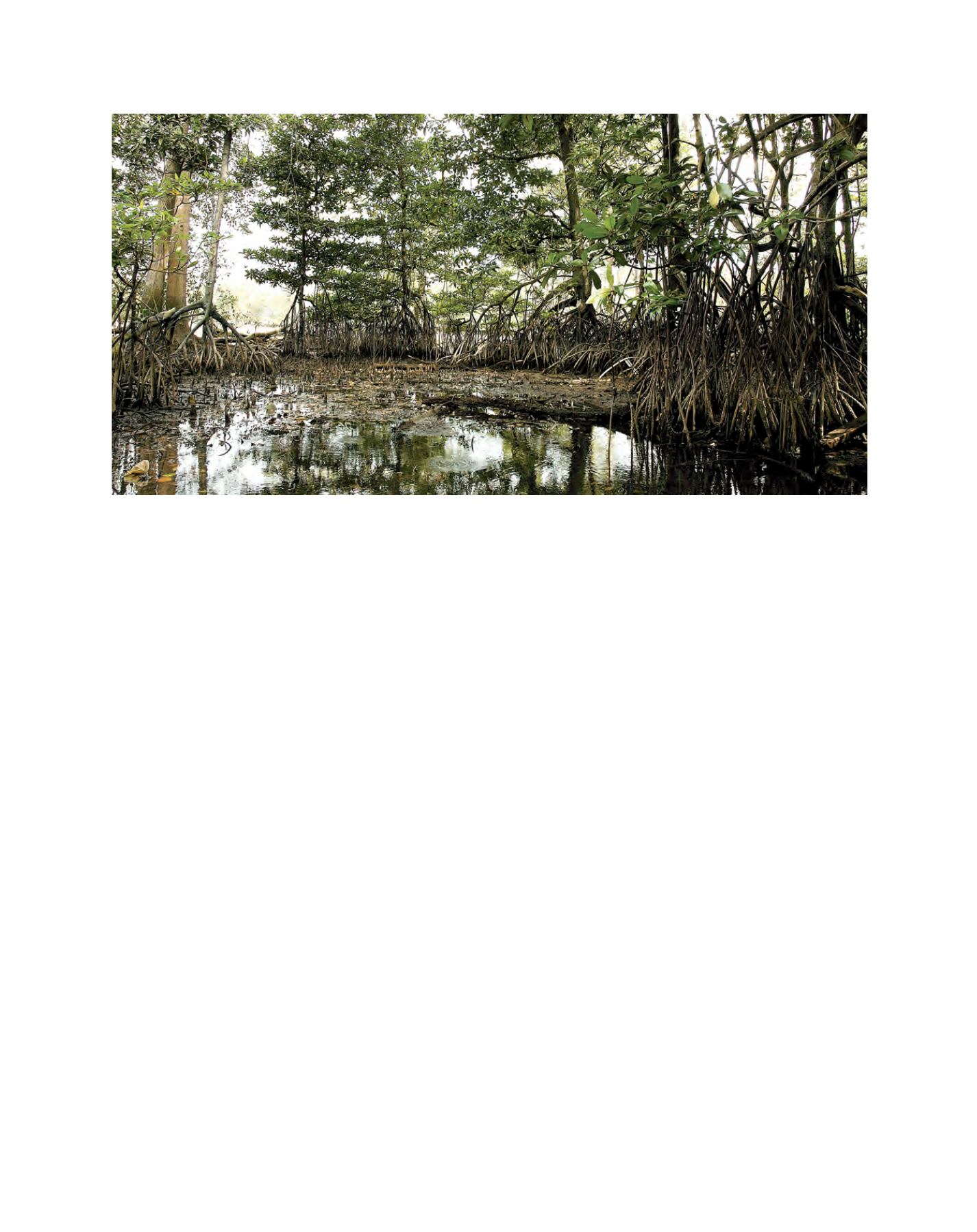

[
] 254
implementation of high-quality research projects aimed at addressing
priority problems, among them IAS.
Viet Nam implemented a research project on solutions to control
the spread of the invasive Mimosa pigra in Viet Nam and ASEAN
countries. The project included a subregional workshop with repre-
sentatives from Cambodia, Lao PDR and Thailand, who shared their
experiences on Mimosa pigra management.
REDD+, TEEB and PES
ACB supports and participates in local and international forums
related to Reducing Emissions from Deforestation and Forest
Degradation in Developing Countries (REDD+), The Economics
of Ecosystems and Biodiversity (TEEB) and Payments for
Ecosystem Services (PES). These initiatives ensure that ASEAN
Member States have a common understanding of current and
emerging issues from a regional standpoint for policy develop-
ment and implementation.
Following the TEEB and PES agenda, ACB co-organized a series of
regional workshops on PES from 2009-2011 with the United Nations
Economic and Social Commission for Asia and the Pacific, the
Asian Development Bank’s Environment Operations Center, the US
Agency for International Development’s Asia Regional Biodiversity
Conservation Programme and the Governments of Thailand and Viet
Nam. In June 2011, ACB collaborated on a regional TEEB workshop
with the Deutsche Gesellschaft für Internationale Zusammenarbeit
(GIZ), through its Biodiversity and Climate Change Project.
Biodiversity conservation and climate change
The effects of climate change on forests are manifested through the
increased occurrence of forest fires during the dry season, the rising
number of pest and disease infestations in forest areas and the threat
to seedlings from changes in precipitation patterns. Other effects
include the upsurge in the population of invasive alien species and
intensifying soil erosion due to intermittent drought and flooding.
Researchers studying forest fires in Indonesia say that
the destruction of forests and peatlands in the country is
making it more prone to forest fires, especially during the
dry El Niño years. Moreover, there was a significant increase
in the intensity and scale of fires beginning in the 1990s due
to industrial logging and expansion of oil palm plantations.
In support of ongoing efforts to address climate
change, ACB and the Federal Government of Germany,
through GIZ, are jointly undertaking a Biodiversity and
Climate Change Project. The project officially kicked off
in September 2010 and will be implemented initially for
two years to support ACB in addressing emerging issues
relevant to climate change and biodiversity in ASEAN.
Promoting regional cooperation and partnerships
All ASEAN Member States are Parties to the Convention
on Biological Diversity (CBD), a global agreement that
encompasses three major goals: the conservation of
biological diversity, the sustainable use of its compo-
nents and the fair and equitable sharing of benefits
arising from the use of genetic resources. They are
also Parties to other international agreements such as
the Convention on International Trade of Endangered
Species of Wild Fauna and Flora, the Convention on
Wetlands of International Importance (especially the
Waterfowl Habitat), the Cartagena Protocol on Biosafety
and the World Heritage Convention.
In addition, through the Singapore Resolution on
Environmental Sustainability and Climate Change, the
ASEAN Environment Ministers agreed in October 2009
to protect and conserve the region’s rich biodiversity by
taking into account the three objectives of the CBD and
to work together to achieve a successful outcome of the
tenth Conference of the Parties to it.
Mangrove forest in Sungei Buloh National Park, Singapore
Image: National Parks Board of Singapore
















